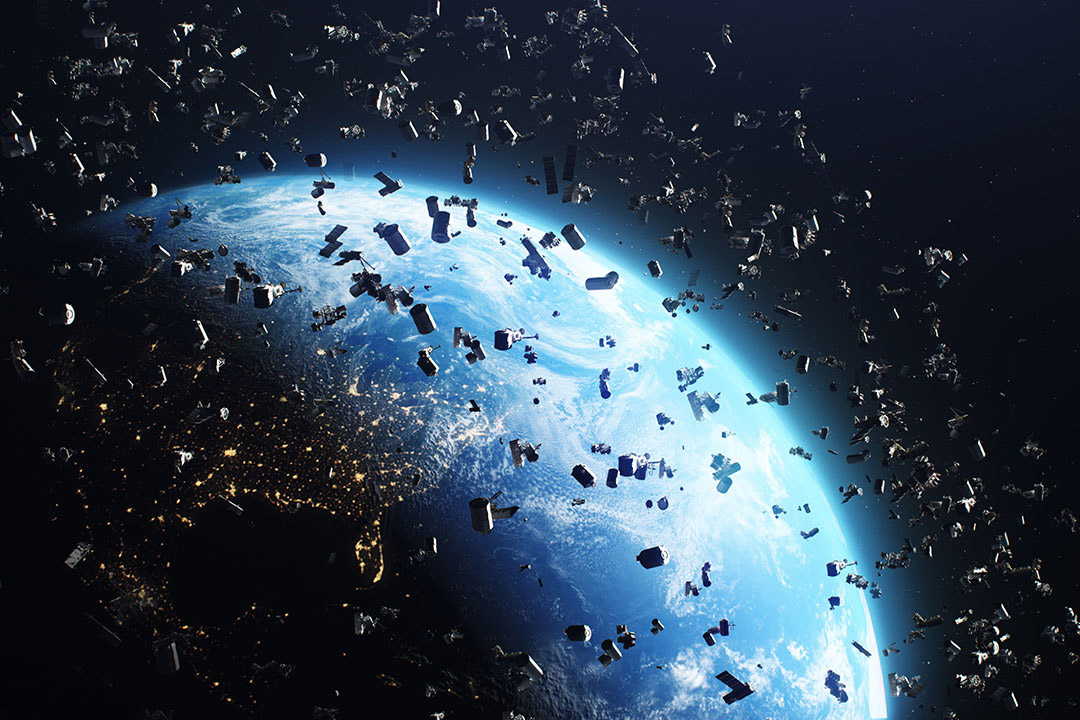RIT researcher helping Air Force investigate unresolved space objects
Michael Gartley is part of a $5 million grant to help protect space assets
Framestock/stock.adobe.com
Unresolved space objects pose a threat to national defense and space missions. RIT’s Michael Gartley is working through a United States Air Force grant to help identify unknown objects.
Satellites, rocket parts, and other space debris are clogging up the atmosphere with the potential to interfere with space-based assets, including items used for national security like GPS, weather, and communication satellites.
Rochester Institute of Technology’s Michael Gartley, research faculty in the Chester F. Carlson Center for Imaging Science, will be helping the United States Air Force Office of Scientific Research investigate these items, called unresolved space objects, to determine what they are and what they are doing as part of a $5 million grant.
When looking at unresolved space objects through a camera or imaging system, their shapes are not clear, and most objects look similar to stars. Using RIT’s state-of-the-art image simulation software tool, Digital Imaging and Remote Sensing Image Generation (DIRSIG), Gartley aims to gather more information on these unknown objects.
“We’re working to develop machine-learning algorithms to look at the brightness of the objects as a function of time to determine what the object is and what it is doing,” explained Gartley.
The research team, led by the University of Texas at El Paso, will be conducting modeling and simulation by taking lab measurements of spacecraft materials, putting those into image simulations, and looking at the light curve of the object over time. This will help train algorithms to identify the unresolved objects and whether they may pose a threat.
An increasing number of items, like satellites and rocket bodies, are being sent into space by a growing number of countries and organizations. These groups do not always disclose what they are sending into space and for what reasons.
“Our government wants to know for the safety of our own assets,” said Gartley. “One of the big problems is the clutter of space, basically a space environmentalism issue. There’s a concern that with so many objects in space, collisions will occur, and satellites and other assets will be taken out of orbit.”
Gartley believes this work will help get ahead of potential problems in the future as the amount of space debris is increasing exponentially. Identifying unresolved space objects is the first step in making sure the pollution of our space and atmosphere doesn’t pose a threat to us here on Earth.
This material is based upon work supported by the Air Force Office of Scientific Research under award number FA9550-23-1-0603. Any opinions, findings, and conclusions or recommendations expressed in this material are those of the author(s) and do not necessarily reflect the views of the United States Air Force.









